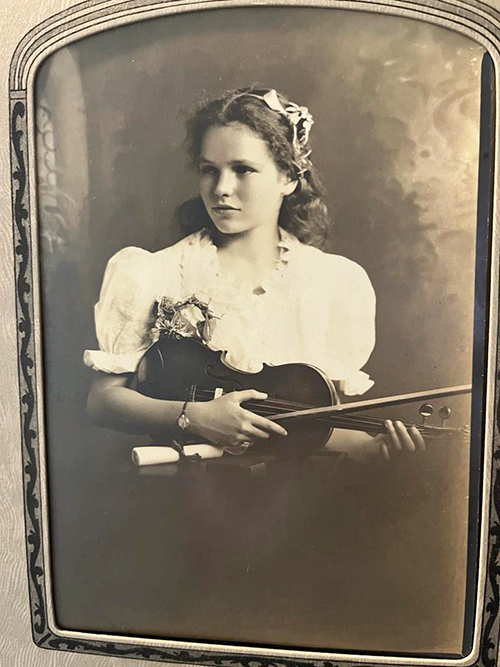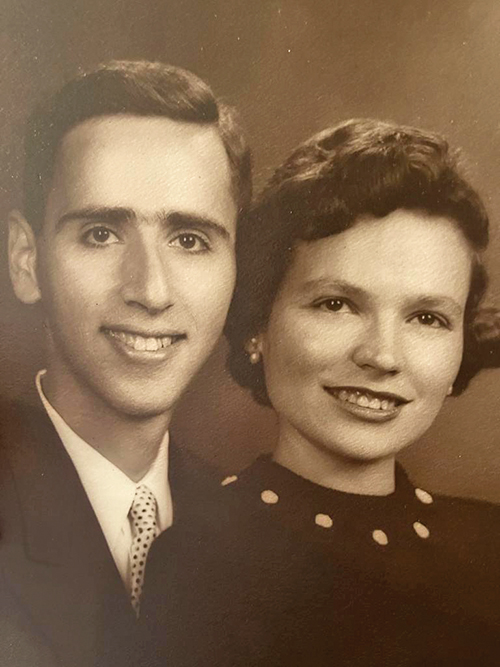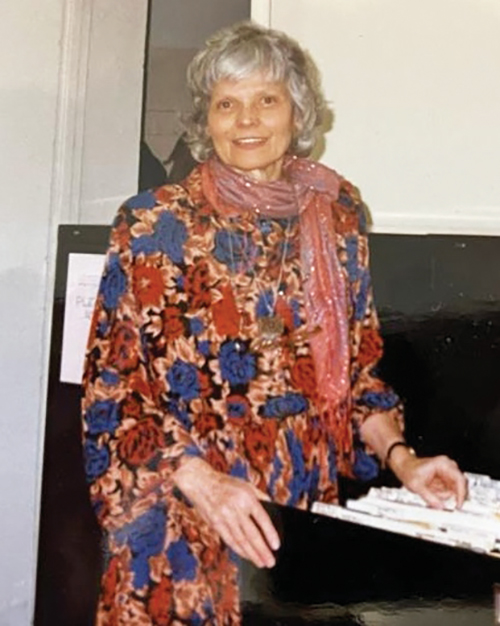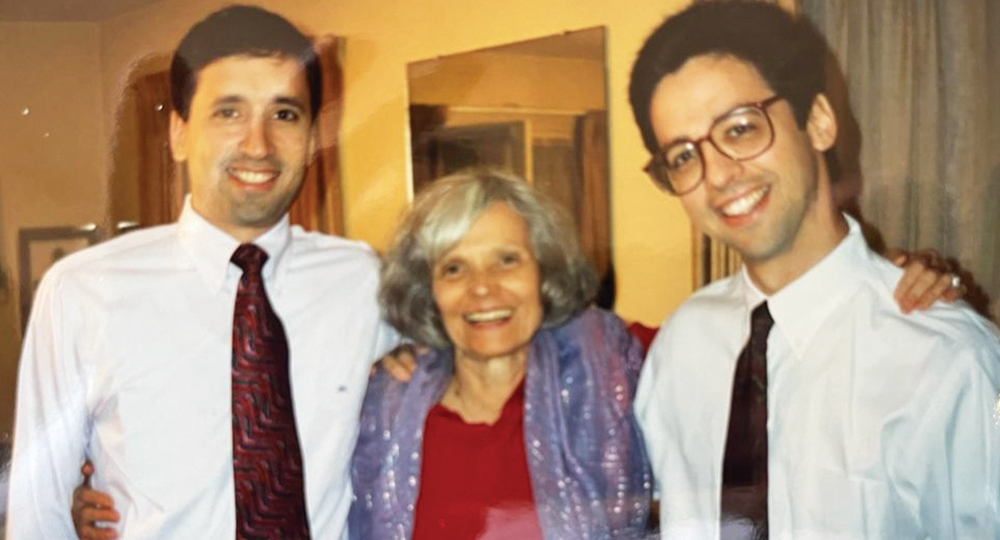
As the 6th of Kislev approaches, members of the Caplan clan from Edison, Marlboro and Israel prepare to mark the first year after the passing of their mother, grandmother, great grandmother and remarkable role model—Iola Caplan, z”l.
While a year has hopefully dulled the pain of her passing, her legacy as a pioneer and an exemplar of observant Jewish life, and a vivid example of professional dedication and personal growth, remains quite vibrant.
Iola Schipler was born in August 1925 and raised in Chatham Township, New Jersey, before her family moved to Newark, New Jersey, in her teenage years, where she attended public school. She was proud of her Jewish faith and periodically experienced derision from her peers and teachers for taking off Jewish holidays or wearing a Jewish-star necklace. But this did not diminish her attachment to Judaism.
After graduating from New York University with a major in music education in June 1946, she immediately went to work teaching music in Jewish day schools in New York City. She taught at the Ramaz School from 1947 to 1949, where she taught the then-teenage Haskel Lookstein, who grew up to become the spiritual leader of Congregation Kehillat Jeshurun.
As she related in an oral history narrative collected by the Monmouth County Library system, in 1949 Iola received a scholarship to spend a year in the newly established state of Israel, making her a pioneer in the American Jewish community to visit and spend extended time in the new country. She participated in a youth leadership training course, which included a heavy focus on music education activities. This opportunity enabled her to meet with teachers throughout the country and learn about the folk music that pervaded the country.

Part of the Caplan family lore is the collective memory that one concert where Iola performed in Israel (she was a virtuoso on violin) had a certain white-bushy-haired short man watching with keen interest from the front row. But there are no known photos of Iola with Mr. Ben-Gurion.
Iola returned to the U.S. in 1950 and searched for a new music-teaching job. She eventually found one in Detroit, Michigan, where she moved in 1951. It was there that she met Philip Caplan, who became her husband—they married in the summer of 1952. Phil had graduated as a physicist and secured a job at Fort Monmouth in New Jersey, which led her back to the East Coast.
Iola and Phil Caplan moved to the Jersey Shore area, spending 15 years in Asbury Park and 38 years in Ocean Township. They promptly got involved in Jewish life—Phil was active in many leadership roles at the Hillel School and Congregation Sons of Israel, and Iola led synagogue youth groups, conducted Jewish choral groups and was very active in numerous community and Zionist organizations. Iola got a job teaching music at the Lakewood Hebrew Day School and the Hillel School in Ocean Township. They also began to build their family, having four children—Hannah, Benjamin, Joshua, and Jonathan. They enrolled their kids in the Hillel School in Wanamassa.
As Josh Caplan of Edison shared with The Jewish Link, while there were a few Orthodox synagogues in the area, most of those who attended those small shuls were not observant. His parents were shomer Shabbat and shomer kashrut, so for many of the children’s friends, and fellow community members, a Shabbat meal at the Caplans’ house was their initial exposure to authentic Jewish observance.

Jonathan Caplan, also of Edison, made a similar point in his eulogy for his mother at her funeral: “Many Jewish people in our relatively small Jewish community had the first experience in their lives of a traditional Shabbos table. And the ambiance was inspiring, with zemirot and divrei Torah. The Caplan family was one of the very few Orthodox families in the community. And many of these same people who enjoyed Shabbat meals at our table became Orthodox over time.”
Iola was also a pioneer in building bridges between observant Jews and other minority communities. As Jonathan shared in his eulogy: “Mom looked at society’s problems and took the bull by the horns to help make a difference. She taught music at the Bangs Avenue School in Asbury Park, with an enrollment of primarily African-American children, mostly from very poor homes. She befriended African-American colleagues and invited them into our home. She sent Benjy, Josh and me to an all-African-American day camp in Asbury Park.
“When Martin Luther King, Jr. was assassinated, she joined a vigil with a primarily African-American audience and sang ‘We Shall Overcome,’ joining in their grief. She taught us that we Jews need to be particularly sensitive to the idea that if one race or religion was under siege, then who is really safe?”
One other area where Iola served as a true pioneer was in her decision, once all four children were in school, to attend graduate school full time to secure a degree in social work. She enrolled in 1965 in the Rutgers Graduate School of Social Work, which entailed a considerable commute (as she points out in her oral history, Route 18 did not exist yet). At the time, it was not common for young mothers to pursue a degree in a full-time program and Iola knew of only one or two other women from Monmouth County who were in similar situations.
Iola interrupted her graduate-school program to care for her terminally ill mother, who moved in with her family. Iola resumed her studies in September 1967 and graduated the following summer. She then worked as a school social worker for different boards of education, serving as a child study team member, before finding her way into private practice in family therapy.
There are many other aspects of Iola’s life that were truly praiseworthy, such as her high sense of professionalism and the great appreciation she earned from her clients; her strong sense of ethics; her devotion as a daughter, mother, mother-in-law, grandmother and great-grandmother; and her commitment to and involvement in the Highland Park/Edison community after she and Phil moved there in 2005.

Two more sterling qualities of Iola’s bear mention in concluding this recollection.
While his decision at the time to make aliyah was less common than it is now, her son Benjy knew he had his mother’s complete support. As he stated in his eulogy at her funeral: “Mom—you were the main person who instilled the love and desire for Eretz Yisroel in your children, which struck roots and is flourishing.”
Iola was also a role model for her zeal in Jewish learning in her retirement years. In her eulogy, daughter Hannah described movingly how she set a chavrusa with her mother to learn sefer Tehillim, studying one perek together each day. As Hannah described: “Every day, we studied for historical context and literary voicing, searching also for clues about ancient instruments, Beit Hamikdash choir leaders, the roles of Leviim and more.” Together they completed almost four cycles of Tehillim, and Hannah said that she considered her mother “my true chavrusa—with all the curiosity, humor, intellect and occasional irreverence that I loved so much.”
Harry Glazer is the Middlesex County editor of The Jewish Link. He can be reached at [email protected].












